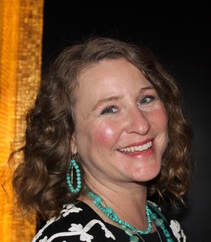|
I know, a topic probably discussed many times here as well as other discussion boards, publications, news outlets, etc. But, I wanted to bring it up.... just... one... more.... time. Since BSF are so adept at digesting animal waste, why not use it to do so? Now, don't get me wrong. I realize there are matters that need to be considered, such as pathogens, heavy metals, and in-system recycling. And, I strongly recommend a comprehensive plan be developed to evaluate the process and ensure its safety. But, as you will see in the following article (by Chelsea Miranda- yes, I am very proud of her. Chelsea did an outstanding job with her PhD in my lab at TAMU), BSF are very effective at reducing a host of manure types. This paper is just the first of six more to be published (exciting, right?!). But I challenge you to consider this option and advocate for more research in this arena. If we can create a safe system for recycling such wastes, why not use it? Miranda, C. D., J. A. Cammack, and J. K. Tomberlin. 2019. Life-history traits of the black soldier fly, Hermetia illucens (L.) (Diptera: Stratiomyidae), reared on three manure types. Animals 9: 281. One thing to note with this study is the scale. The size of the size is definitely bench-top. So, don't expect these results to translate to industrial scale. Insects as Food & Feed in the News..... Mealworms in your food- a nice story on our friend, Lars Heckmann at the Danish Technology Institute. IPIFF hard at work developing standards in EU- A great overview of some challenges faced by the insects as food sector. It also discusses current debate on food hygiene occurring in EU. Edible insect market currently valued at $25 billion USD- Something I have been advocating for the past couple of years- diversify, diversify, diversify the products produced with insects as an ingredient. Colleagues at UC, Davis create startup on insects- Nice job, Lydia and company. I wish you the best of luck! AuthorJeffery K. Tomberlin, PhD, Proud Academic Papa
0 Comments
While, I would much rather pluck each article published in this issue of the journal, Animals, and use them as individual blog posts (allows me to have about a dozen or more posts just from this one issue), I think (this time), it is better to simply provide you with the link to a great collection of articles on insects as feed. Laura Gasco did a great job assembling a team of researchers to present their latest results on insects as a feed source for a variety of livestock, poultry, and aquaculture. I encourage you to check this link periodically as there are new articles being added to the special addition regularly (hint- my lab has one that will be posted soon). Special Issue "Insects: Alternative Protein Source for Animal Feed" Here are just a few topics covered in the special issue:
Insects in the News.....A Single Special Post Youth Invests Time Developing a Home for Ducks: I met this young lady, Azja, at a 4H poultry show this past week. If you have a chance, visit her website. She is very impressive as she has developed a home for ducks not wanted by their owners anymore. She has also initiated a service where she takes her partner, Cuddle Quack, and his friends to visit individuals (i.e., assisted living homes) that enjoy the company of animals. Cuddle Quack even has a youtube channel, twitter feed (if the link does not work- you can find her on twitter), and facebook page. It looks like Cuddle Quack is also a great friend to Azja as well. Again- very impressive! I truly enjoy seeing individuals as young as Azja involved with her community. Please find her on twitter or facebook and encourage her. I know she would appreciate it. AuthorJeffery K Tomberlin, PhD, Impressed by Person Committed to Community Service  "A candle burning at both ends burns brightest, but it cannot last the night." - Joseph T. Shockley Marianne Clopton Shockley, Ph. D., of Apalachee, Georgia passed from this earthly dimension on Sunday, March 12, 2019. She was the third child and second daughter of Drs. John & Sandra Shockley, also residents of Apalachee. Marianne and her elder sister, Suzanne (Mrs. Eric) Hendricks of Soperton, Georgia shared the same birthday of August 14th, though Marianne was five years younger. Their paternal uncle Colonel Peter S. Shockley, Ret., formerly of Alexandria, Virginia, also shared the ubiquitous August 14th birthday. Before joining the faculty of the Entomology Department at the University of Georgia, Dr. Shockley received her Doctorate of Philosophy from UGA in 2009. While in Athens, she was responsible for a great number of the Entomology Department's Community Outreach projects, which included speaking to primary, elementary and middle school students throughout the area about the importance of pollinators such as bees and fruit flies, the viability of insects as a food source, and the value of insects and arachnids in supporting human life on our planet. For more than a decade, Dr. Shockley planned, organized, and taught UGA's summer educational program affectionately known as Bug Camp. Depending upon the local interest, three to six camps could be offered each summer, with Dr. Shockley at the helm of each and every classroom lesson and field trip. Utilizing the University's satellite campuses in tropical locales, such as Ecuador, Dr. Shockley also guided remote expeditions for graduate students, as well as undergrads. Butterflies were always a treasured find, although exotic reptiles were glimpsed on multiple occasions. Dr. Shockley's favorite professional activity, though, was introducing folks to recipes which included insects such as crickets and mealworms. Many a young camper or Entomology student will long remember their first taste of rice cereal treats prepared with freeze-dried crickets, or ChexMix including roasted mealworms. Dr. Shockley published in numerous academic journals and also contributed to several books authored on the subject of edible insects. A speaking engagement in South Africa proved to be incredibly enlightening for the entomologist. There are scores of local populations on the continent that subsist primarily on insects and ground insect meal. She returned stateside more excited than ever about the role her beloved bugs could play in eliminating hunger and food shortages, yet simultaneously increasing protein levels for individuals with metabolic issues. Yet Marianne's favorite personal activity was spending time with her two children, Paul, age 17 and Nora, age 15, both high school students in Madison, Georgia. With the influence and guidance of their grandfather, affectionately known as Papa John, the young pair spent hours on horseback, gradually increasing their skill levels, so as to be able to compete in Georgia High School Rodeo Association events, such as heading & heeling for Paul and barrel racing for Nora. Marianne learned how to drive a 1 ton pick-up truck, pulling a 26 foot horse trailer, on a recent rodeo trip to Alabama. There was no activity too small nor too large for Marianne to organize around her two beloved babies. At Apalachee United Methodist Church, where she was a lifelong member, the trio were often found in Sunday School class, along with friends of the children. Years ago, Marianne's mother, lovingly known as Nee-Nee, began the tradition of preparing a home-cooked Sunday noon meal for the burgeoning class of Bible scholars. Paul and Nora were also vital team members of their mother's Bug Camps. Before they reached double-digit ages, either child could identify the species of ant crawling around their cousin's swimming pool or spider sunning itself on the window sills of their grandparents legendary back porch. They also assisted their mother, in later years, on local field trips and exhibitions. It was not unusual for the little family to take a weekend beach trip to Folly Beach or Sullivan's Island, South Carolina. In addition to her birthday sister Suzanne, Marianne leaves behind one brother, S. Reid Shockley of Apalachee, and younger sister, Ayla (Mrs. Richard) Crippen of Atlanta. Her nieces and nephews - Miranda, Hailey and JT Hendricks, Jack and Dash Crippen, will forever remember their Aunt Marianne as being jovial and full of light and laughter. A multitude of aunts, uncles and cousins will also remember Marianne's bug obsession and joie de vivre. The faculty, staff, former and current students of entomology classes will never forget Dr. Shockley adventurous spirit and willingness to help others. Her innumerable friends from high school, college and the professional community will treasure receiving her ceaseless smiles. Dr. Marianne Shockley's memorial service will be held on Friday, May 17th, 2019 at Apalachee United Methodist Church, beginning at 2pm. The family wishes to extend their deepest and sincerest gratitude to everyone who has stopped by the family home of Hylea, many bearing gifts of food and/or paper products. All have expressed a desire to assist Marianne's children as they grieve the untimely loss of their loving and beautiful mother. A GoFundMe page has been set up for those wishing to donate to the "Celebration of Life of Marianne Shockley". https://www.gofundme.com/f/marianneshockley Donations can also be made to the Apalachee United Methodist Church, in honor and memory of Marianne. These can be mailed to Hazel Nicholson, 1565 Apalachee Road, Madison, Georgia 30650. "She worked hard. She played harder. She loved hardest of all." - anonymous AuthorJeffery K. Tomberlin, PhD, Missing my friend and colleague I am at a meeting in Florida, USA and currently listening to a discussion on disease ecology. So, while the topic is a bit outside my area of expertise, I thought I would quickly post a blog post I have been developing for this week. This article evaluated the replacement of soybean oil with BSF larval oil in the diets of poultry. Turns out, if BSF larval oil is used, the meat quality of finisher broilers is not different from that of chickens fed a standard diet containing soybean oil. But, the authors point out the fat composition of the BSF is sub-optimal for providing healthy meat for consumption. This study is a great contribution as there is simply not enough data available globally to truly know how to optimize BSF as a diet for various livestock. Cullere, M., A. Schiavone, S. Dabbou, L. Gasco, and A.D. Zotte. 2019. Meat quality and sensory traits of finishing broiler chickens fed with black soldier fly (Hermetia illucens L.) larvae fat as alternative fat source. Animals. Insects as Food & Feed in the News....sorry- not much coming up this week. :( Beyond Traditional Meat- nice story on a startup in the insects as food community. AuthorJeffery K. Tomberlin, PhD, Floridian for the Day An interesting dissertation out the University of Liege that caused me to pause and reflect a bit on my "purpose" as a researcher and practitioner in the BSF industry. If I am not mistaken, I believe the student is from the Republic of the Congo and is now a professor there (based on my forensic skills and my sleuthing abilities through the internet. The title of his dissertation is: Agroecological Intensification of Integrated Agriculture Aquaculture Systems: The Case of Smallholder Farms in the Western Democratic Republic of Congo My reason for sharing this dissertation is really more than just about BSF- well, in part is about BSF... but really about philosophy as related to the industry as a whole. I have always felt the BSF belongs to the global community and can be used to enhance economic growth in developing or developed nations throughout the world while protecting the environment or at minimum reducing our impact on it. We, the industry, should try to do more to work with others throughout the world to enhance the use of BSF. Based on the work being published and the efforts of many companies to work globally- it is obvious such efforts are being made. And, I often talk about this system not being reliant on "space-age" technology to mass produce. Individuals can mass produce the BSF with simple materials commonly available. The point being, if the conditions are appropriate, anyone should be able to produce BSF. In fact, as demonstrated in this dissertation, an integrated approach to sustainable agriculture can alleviate economic pressures on communities without heavy investment from outside entities. And, BSF can be part of this effort. At the same time, such an approach, while eliminating, or reducing, dependencies on imports to sustain a system, creates community industry where one farmer can feed family, a village of farmers feeds a region, a region feeds a nation, and so on. Insects as Food & Feed in the News Insect Sausage and Ice Cream: Boy has this article gained traction! Margaret Krome: A discussion on insects as a natural part of the human diet. Crickets Taste Like Cotton Candy- in Maine? Novel approaches for preparing crickets for consumption by people. Oviposit in the News! Congrats Oviposit team on a great article about your company. AuthorJeffery K. Tomberlin, PhD, Inspired by Community |
AuthorIndividuals with over 25 years research experience with the black soldier fly. We are passionate about the science behind the black soldier fly and its ability to convert waste to protein. Get Notified Here
Archives
September 2022
Categories
All
Install an RSS app to get notified from us when a new post is up!
|
ServicesSupport |
About |

 RSS Feed
RSS Feed

